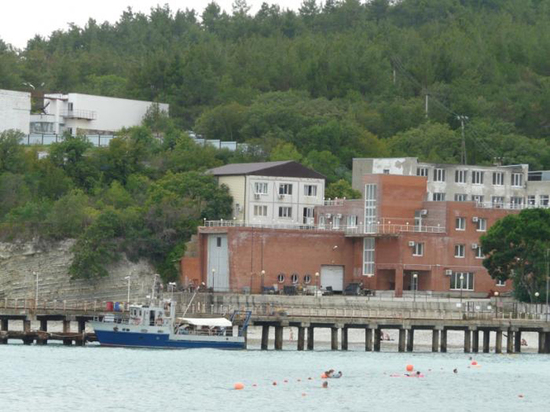Moscow State University opposed the transfer of the department of the Institute of Oceanology to Kurchatnik
[ad_1]

A group of teachers from the Faculty of Geography of Lomonosov Moscow State University opposed the transfer of the Southern Branch of the P.P. Shirshov RAS Kurchatov Institute. On the eve of the summer internship in Gelendzhik (the branch of the IO RAS is located there), they decided to remind that not only the employees of the institute are interested in the stable operation of this naval base, it is the only one where future oceanologists can practice.
As we already reportedat the end of February, the leadership of the Kurchatov Institute sent a letter to the Ministry of Education and Science stating that Kurchatnik needed to transfer the property complex of the Southern Branch of the IO RAS “to form an experimental coastal base for research and development on the Black Sea coast near the city of Gelendzhik in the interests of the defense and security of the Russian Federation”.
In fact, the respected Kurchatov Institute, represented by its President Mikhail Kovalchuk, dreams of adding another base in the Krasnodar Territory, taking the last one from the Institute of Oceanology. And it would be okay if oceanologists did not work well – IO RAS is the leading Russian institute, included in the first, best category (according to the latest gradation of the relevant Ministry of Science and Higher Education of the Russian Federation). This means that he has his own government assignments, including those that are of defense importance – a load and a small cart! But they will take away the base, and the results may come to naught …
It turned out that the IO RAS is not the only organization that stood up like a mountain for its Southern Branch in Gelendzhik. The letter, addressed so far to the head of the Russian Academy of Sciences, as the organization responsible for the scientific and methodological guidance of all scientific organizations in the country, was written by employees of the Faculty of Geography of Moscow State University. Lomonosov, asked Gennady Krasnikov to help preserve the Southern Branch.
– Our Department of Oceanology is 70 years old, – Dean of the Faculty of Geography, Head of the Department, Academician of the Russian Academy of Sciences Sergey Dobrolyubov plunges us into history. – Until 1991, our students had onshore and ship practice in Odessa and Sevastopol. After all of them suddenly became Ukrainian, we stopped going there.
Then the Institute of Oceanology, its director and our graduate Sergey Sergeevich Lappo, extended a helping hand to us. We were allowed to practice in Gelendzhik, on the basis of the Southern Branch of the IO RAS. There were instruments, moorings and a fleet. For 30 years in a row, we have been taking our students to this base for 1.5 months every summer for 1.5 months. More than one generation of scientists has grown from those students, for example, at the Institute of Oceanology itself, the heads of laboratories: biohydrochemistry, tsunamis, and a number of others are graduates of the Faculty of Geography.
Alas, the last ten years, which have passed after the reform of the Russian Academy of Sciences, which was disastrous for our science, have pretty much battered the very base in Gelendzhik, in particular, from the ships, according to Sergei Anatolyevich, only one remained there – the 30-ton Ashamba, but scientists and students and he is welcome, he can work in the 12-mile zone of territorial waters.
“The southern department is not only a base, but highly qualified scientists work there, who give lectures to students about coastal processes, about the features of the biology of the sea,” says Dobrolyubov. – And not only we come here – here you can meet students from the Department of Thermohydromechanics of the Moscow Institute of Physics and Technology, and even from the Sevastopol branch of Moscow State University! It would seem that the last to do here, they also have their own Crimean coast. There is a coast, but there are no conditions suitable for certain types of sea practice, such are only in Gelendzhik.
In particular, Sergey Anatolyevich cites as an example a unique integrated marine and coastal carbon range. It is necessary for a specialist to study the flows of gases between the sea and the atmosphere, vegetation, soil and atmosphere – all this he can get only here.
– What are you worried about now? – I ask the dean, – this question seems to postponed?
– From day to day we need to take train tickets – in two months we are sending a new group of students. It seems that no one is driving us from the Southern Branch yet, but there is also no information that the base will be left behind by the Institute of Oceanology.
We would like more specifics so that we can work calmly. In our letter to the head of the Russian Academy of Sciences, the president of our faculty, academician Nikolai Sergeevich Kasimov, and I wrote what we want: to keep the department as an integral part of the Institute of Oceanology, since we believe that the alienation of its property complex will cause irreparable harm to the training of highly qualified personnel.
[ad_2]
Source link








